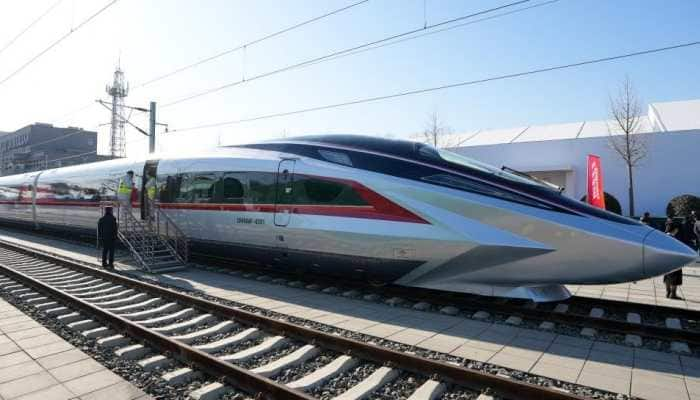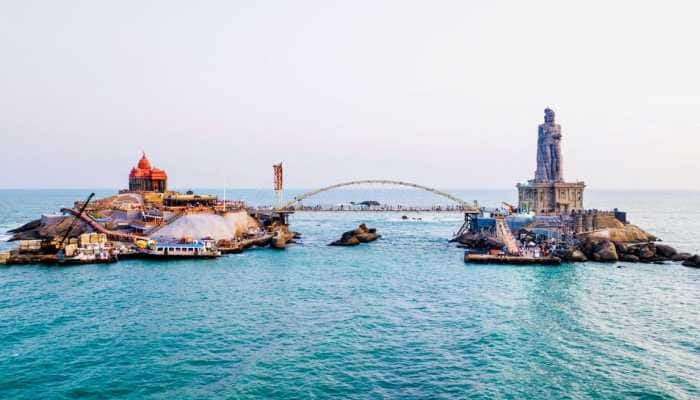Divided Egypt votes on new constitution
The run-up to the referendum saw deadly clashes between supports of the government and those against it.
Trending Photos
)
Cairo: Egyptians, weary of a prolonged political turmoil, on Saturday began voting on a referendum over a divisive constitution that has brought Islamist President Mohammed Mursi on a confrontation with a secular opposition which accused the Muslim Brotherhood of "vote-rigging".
The two-phased polling began amidst tight security. A little more than half of Egypt`s electorate of 51 million are eligible to vote in the first round while rest would be able to vote in the next phase on December 22.
President Mursi and his Muslim Brotherhood have campaigned heavily in favour of the draft document, which may define Egypt for years to come. Opponents say it is poorly drafted and overly favours Islamists.
People queued in long lines at polling stations in Cairo, Alexandria, Daqahliya, Gharbiya, Sharqiya, Assiut, Sohag, Aswan, North Sinai and South Sinai.
The run-up to the referendum saw deadly clashes between supports of the government and those against it. Soldiers joined police outside polling stations to secure referendum after deadly protests.
Meanwhile, the National Salvation Front, the umbrella opposition group, has said it was deeply concerned about voting irregularities, such as directing voters outside polling stations to vote yes.
In a statement, the group expressed "deep concern... Over the number of irregularities and violations in the holding of the referendum".
This, it alleged, pointed to a "clear desire for vote-rigging by the Muslim Brotherhood".
The front organised demonstrations at the presidential
palace and in Cairo`s iconic Tahrir Square yesterday, after deciding to call on followers to vote "no" in the referendum, rather than a boycott.
Egypt has been in turmoil for nearly two years after the fall of strongman Hosni Mubarak.
Egypt`s Constituent Assembly on November 30 in a marathon session approved the draft constitution imposing Islamic values, a move opposed by Liberals as an attempt to restrict freedom of speech and religion in the country.
The articles passed, stipulated that Islam is the religion of the state, and the principles of Sharia, or Islamic law, are the "main source of legislation".
Mursi then decided to hold a referendum on the controversial draft constitution on December 15, a move that sparked further outrage in the country.
A constitution must be in place before elections can be held early next year.
Statements from the country`s High Elections Commission say that there are 7,000-10,000 judges supervising the polling. Some 250,000 security personnel, including soldiers and police, have been deployed to ensure peaceful referendum.
This is the fifth elections Egyptians have since the January 25 revolution, the first being the referendum on March 2011 constitutional declaration, then the People`s Assembly elections in November and December 2011, the Shura Council elections in January and February 2012 and the presidential elections in May and June 2012.
Egyptians abroad, had already begun voting in the referendum on the new constitution. Voting was taking place at Egyptian embassies abroad, with more than 500,000 Egyptians expected to cast their votes in 150 countries.
The present political turmoil began after President Mursi granted himself absolute powers through a November 22 decree that had put his decisions beyond judicial review, a move which gained him titles like "dictator" and "Pharaoh".
Mursi tried to calm protests by annulling the decree, but decided to go ahead with the referendum.
Mursi has also issued a new decree giving police powers to the army to beef up security ahead of tomorrow`s referendum.
PTI
Stay informed on all the latest news, real-time breaking news updates, and follow all the important headlines in india news and world News on Zee News.
Advertisement
Live Tv
Advertisement







)
)
)
)
)
)
)
)
)
)
